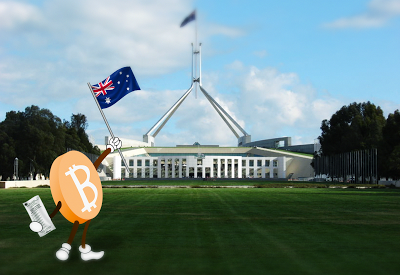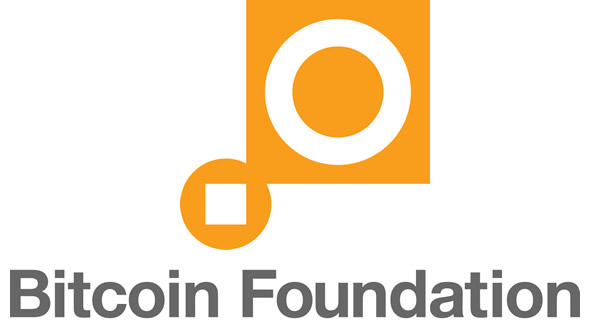

How the blockchain can improve the Australian voting system
Flux Party is a new Australian political party that wants to renovate the voting system by using the blockchain.
How it works
Too old for the Internet era
A revolutionary but not so new idea
Open your free digital wallet here to store your cryptocurrencies in a safe place.

Bitcoin Foundation throws up everything you need to know about Bitcoin on GitHub
GitHub to educate people about Bitcoin and its potential, its website announced today.
The Bitcoin Foundation announces a set of education resources (hosted on GitHub) here: http://t.co/BbYNwLDlny
— a16z (@a16z) July 25, 2014
committee creates guides for the general public about Bitcoin. It also
describes the committee’s goal to decentralize information about the
alternative currency by having content creation available to anyone on
GitHub. Anyone can join the education committee and
contribute to, update, or edit the content on GitHub. Membership in the
committee will be determined by contributions, not by a decree.
standardization of, the protection of, and the promotion of Bitcoin. The
education committee focuses on promotion
of Bitcoin, which in the “context of public misunderstandings,
misinterpretations and misrepresentations” about Bitcoin, “allow[s] the
community to speak through a single source.” With this
method, the foundation seeks to improve Bitcoin’s reputation.
the committee won’t need a chairperson, which adds to the middle
man-less nature of Bitcoin. People in the committee would come and go as
they please. Ideas would gain and lose momentum as they become updated
or tossed aside. With GitHub, everyone’s work would be visible to the
public, and everyone could assist in educating the world about Bitcoin.
Open your free digital wallet here to store your cryptocurrencies in a safe place.
Next Bitcoin Core Version to Include ‘Smarter’ Transaction Fees
details of new floating transaction fees to be included in the code of
the next Bitcoin Core release.
stated that the updated code will enable “smarter” fees that account
for the length of time it takes to confirm transactions on the bitcoin
network. Ultimately, the new code will determine transaction priority,
making sure that transactions confirm more efficiently.
code as the reason for the update. These complications result in
inconsistent and time-consuming confirmation periods. He wrote:
“Instead of using hard-coded rules for what fees to pay,
the [new] code observes how long transactions are taking to confirm and
then uses that data to estimate the right fee to pay so the transaction
confirms quickly – or decides that the transaction has a high enough
priority to be sent for free but still confirm quickly.”
how much priority they want their transaction to receive. In some cases,
users may opt to have as many as six blocks pass before the first
confirmation is received.
Systemic fee problems addressed
send large bitcoin transactions. As Andresen explained, the new code
eliminates some of the hurdles that slowed down transactions in excess
of 1,000 bytes in size.
framework. The code that determines priority for free transactions
automatically places them at a disadvantage in the network. This results
in a significant increase in confirmation times.
“The current situation is even worse for free,
high-priority transactions: the hard-coded ‘high-priority’ constant is
much too low, so transactions sent for free can take a very long time to
confirm.”
more effective transaction fee determinations within the bitcoin
network.
Future updates possible
fees, citing the behavior of miners – and their preference for high-fee
transactions – as reasons to avoid such an approach. Notably, he said
there was no desire within the bitcoin development community to
institute fixed fees.
“I expect to see transaction fees rise until a good
solution for optimizing the propagation of blocks across the network is
deployed, because I expect transaction volume to increase and I don’t
think miners will include more transactions in their blocks until
somebody fixes the ‘bigger blocks take longer to broadcast’ problem.”
develop new code that enables a more efficient and healthy transaction
process.
Open your free digital wallet here to store your cryptocurrencies in a safe place.

Bitcoin Society CEO: Why digital currency is a tool for global good
(CoinDesk) The weekend before last week’s Bitcoin2014 conference in Amsterdam, 22-year-old Matthew Kenahan had a choice to make – one that he said was “probably one of the most difficult decisions I’ve ever had to make”.
rewarded with not only winning the award for ‘Most Impactful Charity’, but also for ‘Bitcoin Champion’ after Andreas Antonopoulos was unable to accept the prize due to a conflict of interest.
My sincere thanks to anyone who voted for me in the blockchain awards. I apologize for not being able to accept due to conflict of interest
— AndreasMAntonopoulos (@aantonop) 16 Maggio 2014
Tool for charity
we’re trying to connect people,” Kenahan explained
“[Bitcoin] allows you to create a unique address, for a very specific cause […]
we see both the incoming and outgoing transactions, and we can see that
it’s used for a very specific cause.”
Image problem
Future plans
Open your free digital wallet here to store your cryptocurrencies in a safe place.

Bobby Lee, Brock Pierce Join Bitcoin Foundation’s Board of Directors
(CoinDesk) Bobby Lee and Brock Pierce have joined the Bitcoin Foundation’s board
of directors, after coming top in a second round of votes cast by the
organisation’s industry members.
The run-off election featured three candidates, including BTC China CEO Bobby Lee, venture capitalist Brock Pierce and CEO of mobile gift card provider Gyft, Vinny Lingham.
The results were particularly close, with Lee receiving 79% approval
and Pierce scoring 65% – just 2% above Lingham, who received 63%.
With the announcement, Lee and Pierce join a board that includes executive director Jon Matonis, bitcoin chief scientist Gavin Andresen, Bitcoin Magazine’s Elizabeth Ploshay and Ribbit Capital’s Micky Malka, alongside founder and chairman Peter Vessenes.
This news follows the 1st May results of an initial round of voting, which ended with none of the original 15 candidates reaching the necessary vote threshold to win a seat.
These industry seats have been vacant since the resignation of two founding members – former BitInstant CEO Charlie Shrem and Mt. Gox CEO Mark Karpeles – earlier this year.
Open your free digital wallet here to store your cryptocurrencies in a safe place.

Bitcoin Foundation: Update on Transaction Malleability

Open your free digital wallet here to store your cryptocurrencies in a safe place.

